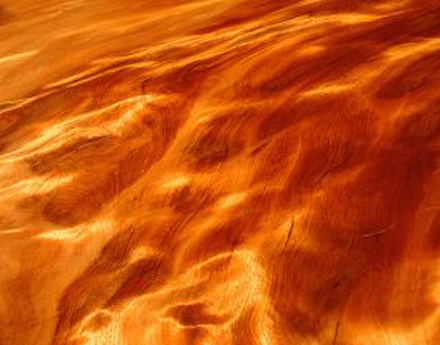
Lawmakers have called for a ban on the “mining” of an ancient New Zealand timber resource after a government report showed that half of it might have already disappeared. Source: Xinhuanet
The report showed that an estimated 30% to 50% of swamp kauri logs – massive logs of New Zealand’s native kauri hardwood that have been preserved in peat land for thousands of years – have been removed from the ground.
It was one of three reports on swamp kauri, which is found in the far northern Northland region, published by the Ministry for Primary Industries (MPI) recently.
The reports provided information on the scientific and cultural values of swamp kauri and its distribution and remaining volume.
“This is the first time an attempt has been made to assess the swamp kauri resource,” MPI director general of regulation and assurance Bryan Wilson said in a statement.
The reports also said that swamp kauri held significant value for New Zealanders, due to its age, appearance, and its cultural properties.
“They also highlight swamp kauri’s scientific value in helping to understand the natural history of New Zealand, and its contribution to understanding the effects of climate change,” said Mr Wilson.
Swamp kauri timber, also known as ancient kauri, is milled from kauri trees that have been buried and preserved in peat swamps for between 800 and 60,000 years. Some kauri trees were up to 2000 years old when they fell.
MPI is responsible for overseeing and regulating the milling and export of swamp kauri, which is the world’s oldest workable wood.
Swamp kauri can only be legally exported as a finished product or as whole or sawn stumps or roots – provided the timber didn’t come from indigenous forest land.
Stumps and roots intended for export must be visually inspected and approved by MPI before they leave New Zealand.
Breaches of these rules can incur fines of up to NZ$200,000.
In the second quarter of 2016, about 1500 cubic meters were approved for milling and less than 200 cubic metres were approved for export, according to MPI.
In 2015, the Auditor-General reviewed the regulation of the milling and export of swamp kauri by MPI after claims that exporters were duping regulators to illegally sell the logs abroad, but found it was being carried out effectively.
The opposition Green Party called for a moratorium on further mining of swamp kauri. The reports showed almost 80% of land containing swamp kauri might have significant ecological value, despite these areas currently being classified as “unlikely” to have any, said Green Party environment spokesperson Eugenie Sage.
“We simply shouldn’t be ripping up our wetlands for short-term profit when the environmental destruction will last for generations to come,” Sage said in a statement.
“This is a prime example of a short term, high impact extractive industry exploiting a scarce and finite resource.”







